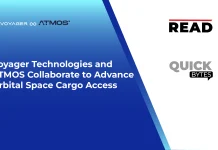bluebird bio, Inc. announced the outcome of the U.S. Food and Drug Administration’s (FDA) Cellular, Tissue, and Gene Therapies Advisory Committee (CTGTAC) discussion of elivaldogene autotemcel (eli-cel) for the treatment of early active cerebral adrenoleukodystrophy (CALD) in patients less than 18 years of age who do not have an available and willing human leukocyte antigen (HLA)-matched sibling hematopoietic stem cell (HSC) donor.
Also Read: MEDICALGORITHMICS Secured FDA Approval for Qpatch Wearable
On the question “Do the benefits of eli-cel outweigh the risks, for the treatment of any sub-population of children with early active cerebral adrenoleukodystrophy (CALD)?” the CTGTAC voted 15 (yes) to 0 (no).
“For decades, the CALD community has fought for the opportunity to stave off the rapid, irreversible decline associated with this devastating disease,” said Andrew Obenshain, chief executive officer, bluebird bio. “Today we are one step closer to delivering a potentially lifesaving therapy for CALD. We are grateful to the families, clinicians and committee members who participated in today’s advisory committee discussion and remain committed to working with the FDA as it completes its review of the eli-cel Biologics License Application.”
CALD is a rare, progressive, neurodegenerative disease that primarily affects young boys and causes behavioral, cognitive, and neurological deficits. Nearly half of patients who do not receive treatment die within five years of symptom onset. Allogeneic hematopoietic stem cell transplant (allo-HSCT) is currently the only effective treatment option but is associated with serious potential complications and mortality that increase in patients without a matched sibling donor. If approved, eli-cel will be the first approved gene therapy to address the underlying genetic cause of disease for patients living with CALD in the U.S. – offering the more than 70% of patients diagnosed with CALD who do not have a matched sibling donor an alternative to allo-HSCT.
The committee’s recommendation is based on the Biologics License Application (BLA) currently under priority review by the FDA with a PDUFA goal date set for September 16, 2022. The BLA for eli-cel is supported by efficacy and safety data from the completed Phase 2/3 Starbeam study (ALD-102) (N=32). Additionally, the BLA contains data for 35 subjects dosed in the Phase 3 ALD-104 study. In clinical studies, patients treated with eli-cel were more likely to achieve both overall and event-free survival than allo-HSCT patients without a matched sibling donor, with the clearest benefit for patients without a matched donor of any type.
The eli-cel clinical program was placed on a clinical hold following a Suspected Unexpected Serious Adverse Reaction (SUSAR) of myelodysplastic syndrome (MDS) in August 2021. Consistent with this known risk, two additional cases of MDS have subsequently been reported. All patients who received eli-cel in the clinical program continue to be closely monitored, per study protocols.




